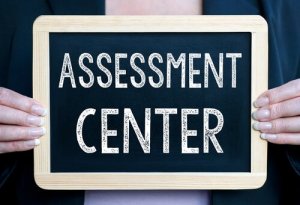Medical Tools to Assess Mild Cognitive Impairment

As soon as you experience the early signs of cognitive impairment, you need to go see a specialist. If the impairment is due to stress, medications, or another temporary event, you can start working on the problem and reduce the symptoms.
In any other case, early diagnosis gives you time to treat the issue and slow its development. Subsequently, it’s important to know what’s wrong. That first consultation is essential in knowing what to do next.
The first specialist that takes care of a person with cognitive impairment symptoms is their family doctor. At first, they’ll review the patient’s medical history. Similarly, they’ll question the patient and their inner circle to know what symptoms they have. During the interview, the doctor will collect data that will allow them to create the patient’s pathography.
The final goal of this first examination is to create diagnosis hypotheses by collecting the following information:
- Personal and family information.
- Reason for consultation.
- Personal background.
- Family background.
- Most relevant symptoms.
Diagnostic criteria for mild cognitive impairment assessment
Firstly, it’s important to know what criteria doctors follow when assessing cognitive impairment in patients.
Diagnostic criteria for MCI (Petersen et al., 1999)
To assess a possible mild cognitive impairment, doctors first look for:
- Memory loss complaints coming from the patient or their families.
- The reporting of a decline in cognitive function relative to previous abilities or lower than average for their age group.
- Normal cognitive function.
- No major repercussions on daily life.
- Absence of dementia.

Diagnostic criteria for minor neurocognitive disorder (according to the DSM-5)
When evaluating minor neurocognitive disorder, doctors study:
- Evidence of minor cognitive decline from previous abilities.
- If the cognitive deficit interferes with the patient’s independence. For instance, maybe they’ll need to make more efforts, use different strategies, or make adjustments to keep their independence.
- These cognitive deficits aren’t exclusive to delirium.
- Above all, cognitive deficits can’t be attributed to the presence of other mental disorders.
Once the primary care provider checks the previous criteria and reaches a diagnosis, they’ll refer the patient to whatever care they believe appropriate. Some healthcare providers that also evaluate cognitive impairment are:
- Neurologists.
- Psychologists.
- Psychiatrists.
- Neuropsychologists.
- Physical therapists.
- Occupational therapists.
- Social workers.
It’s worth noting that all healthcare providers involved work to diagnose cognitive impairment. Some medical tools can help them.

Medical tools to assess cognitive impairment
Some of the most important tools to evaluate cognitive impairment are:
Detection tests
- Mini-Mental State Examination (MMSE). This is a practical screening test to detect cognitive disturbances. It’s a popular tool with a swift implementation. To use it, providers need to know the patient’s age and previous medical studies. This a thorough test to assess possible cognitive impairment. For instance, it values short-term and long-term memory, focus, and language, etc.
- The clock-drawing test. This is a popular test used to assess cognitive impairment. Above all, this test offers valuable information on visual perception, visual and motor coordination, visuoconstructional skills, and motor skills. Most importantly, it allows doctors to evaluate different cognitive functions.
- The seven-minute screen test. Even if it seems like a rapid test, it gives information on a patient’s temporal orientation. The test assesses short and long-term memory and word retrieval skills. This test has a proven track record of detecting Alzheimer’s disease.

Tests for neuropsychological evaluation
- Consortium to Establish a Registry for Alzheimer’s Disease (CERAD). This test evaluates the patient’s learning skills, as well as short and long-term memory. It’s advisable to use it on patients with dubious results in other tests.
- Wisconsin Card Sorting Test (WCST). On the other hand, this test measures some executive functions. Some of these functions are flexibility when changing tasks, forming categories, abstract thought, problem-solving skills, etc.
- Go/No-go. According to Buller (2010), just like the previous test, it assesses possible lesions on the frontal lobe. Therefore, this test measures conceptualization, mental flexibility, autonomy, and control, among others.
- Cambridge Cognition Examination (CAMCOG). Besides from diagnosing and evaluating dementia, it also evaluates possible depression, delirium, and paranoid states.
There are many tests to assess mild cognitive impairment and dementia. It’s important for these evaluations to be conducted by highly-trained specialists.
All cited sources were thoroughly reviewed by our team to ensure their quality, reliability, currency, and validity. The bibliography of this article was considered reliable and of academic or scientific accuracy.
- Ayuso, T., Ederra, M. J., Manubens, J. M., Nuin, M., Villar, D., & Zubicoa, J. (2007). Abordaje de la demencia. Guía de actuación en la coordinación Atención Primaria-Neurología. Servicio Navarro de Salud-Osasunbidea.
- Buller, I. (2010). EVALUACIÓN NEUROPSICOLÓGICA EFECTIVA DE LA FUNCIÓN EJECUTIVA. Propuesta de compilación de pruebas neuropsicológicas para la evaluación del funcionamiento ejecutivo. Cuadernos de Neuropsicología/Panamerican Journal of Neuropsychology, 4(1), 63-86.
- Casanova Sotolongo, P., Casanova Carrillo, P., & Casanova Carrillo, C. (2004). Deterioro cognitivo en la tercera edad. Revista cubana de medicina general integral, 20(5-6).
- Claver, M. D. (2008). Instrumentos de valoración en el deterioro cognitivo leve. Psicogeriatría, 0, 9-15.
- Contador, I., Fernández-Calvo, B., Ramos, F., Tapias-Merino, E., & Bermejo-Pareja, F. (2010). El cribado de la demencia en atención primaria. Revisión crítica. Revista de neurologia, 51(11), 677-686.
- del Ser Quijano, T., de Yébenes, M. J. G., Sánchez, F. S., Payo, B. F., Laso, Á. R., Martínez, M. P. B., & Puime, Á. O. (2004). Evaluación cognitiva del anciano. Datos normativos de una muestra poblacional española de más de 70 años. Medicina clínica, 122(19), 727-740.
- Gallego, M. L., Ferrándiz, M. H., Garriga, O. T., Nierga, I. P., López-Pousa, S., & Franch, J. V. (2009). Validación del Montreal Cognitive Assessment (MoCA): test de cribado para el deterioro cognitivo leve. Datos preliminares. Alzheimer Real Invest Demenc, 43, 4-11.
- Madrid, L. (2004). Versión española del Test de los 7 Minutos. Datos normativos de una muestra poblacional de ancianos de más de 70 años. Neurología, 19(7), 344-358.
- Redondo, V. “Evaluación en demencias primarias. Neurológica y psíquica”. Universidad de Salamanca. Salamanca, 2017
This text is provided for informational purposes only and does not replace consultation with a professional. If in doubt, consult your specialist.








